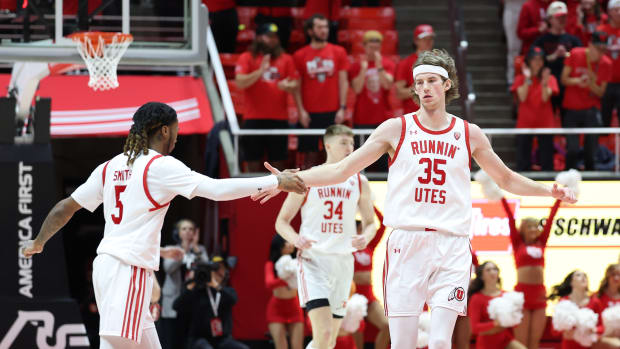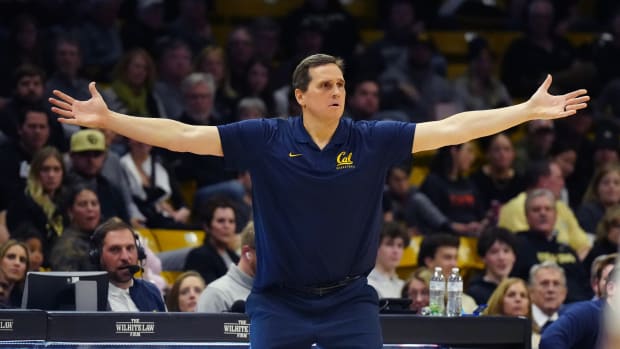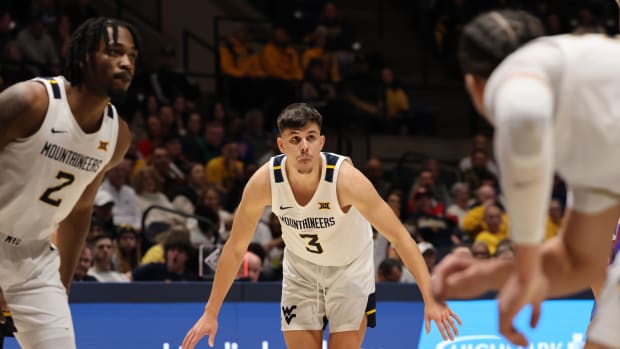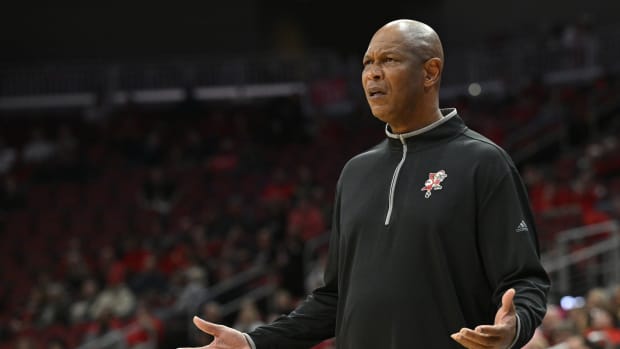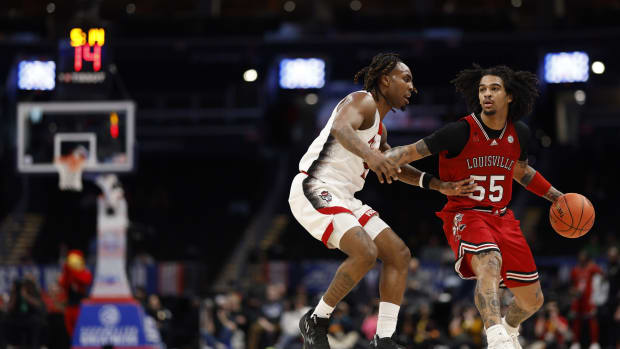Gonzaga still climbing after 1999 NCAA run
GLENDALE, Ariz. (AP) Gonzaga's long journey to this year's Final Four is generally considered to have started with the Zags' 1999 Elite Eight run.
The seeds for that surprising burst into national prominence were planted four years earlier, when a scrappy group of players won the first of 17 West Coast Conference Tournament titles and made the program's inaugural trip to the NCAA Tournament.
''When we showed up, we were literally just trying to live up to the standard of the group before us,'' said Matt Santangelo, a guard on the 1999 team. ''They were Zags. They lived hard, they played hard, they were overachievers, but they already started the foundation. Our group, it was rose-colored glasses because we were the ones who started it. No, we were just taking it to our level.''
But that level was a huge step up, paving the way for Gonzaga's rise to national prominence that has led the Zags to Arizona, where they'll face South Carolina in the Final Four on Saturday night.
The 1995 NCAA appearance gave Gonzaga some national exposure, but a first-round loss and three consecutive seasons without returning to the NCAA Tournament knocked them miles from the spotlight again.
The 1999 team, led by Santangelo and Richie Frahm, played a tough non-conference schedule that included a season-opening loss to Kansas and a win over Washington. The Zags finished 12-2 in the WCC during the regular season then swept through the conference tournament with three blowouts.
Gonzaga's return to the NCAA Tournament started in Seattle, where the Zags knocked off Minnesota and Stanford to reach their first Sweet 16. That gave them extra attention and it exploded with a 73-72 win over Florida that included a late tip-in by sophomore Casey Calvary and a mad scramble by the Gators to get off a final shot.
The Zags were loose, playing with found money, so to speak, and relished the opportunity to make a name for themselves.
''When we got there, there was a sense of we arrived because just getting to the tournament was a huge accomplishment for the program, so we figured while we're here, we might as well win,'' said Santangelo, who works on Gonzaga's radio broadcasts now. ''We had the team and the talent to compete regardless of the name on the jersey or that no one could pronounce our name.''
That name became popular quickly.
The culmination of the Zags' improbable run and their wild finish against Florida thrust them into an unfamiliar light. All of a sudden, everyone wanted to know about the tiny Jesuit school in eastern Washington: how to pronounce to school's name, where it was located, what conference it played in.
''It was totally lightning in a bottle,'' Santangelo said. ''No one knew anything about us and here we were going up against big schools and having success. And it all happened so quick because the tournament is the tournament and everything is so fast. We kind of had fun with it because we weren't so seasoned. We had fun with the media: `You want to ask us questions? We've got plenty to say.'''
That run was the genesis for the program's transformation into a national powerhouse.
Coach Dan Monson parlayed the run into the head job at Minnesota and Gonzaga elevated his top assistant, Mark Few.
Gonzaga still had limited resources - players had blue warm-up jackets that they had to return at the end of the season - so Few took gradual steps, recruiting high-character players who fit into his system while making do with a shoestring budget.
The resources began to grow as the Zags continued to win and so did the recruiting base. Gonzaga became a household name in basketball circles, a top-tier program that earned No. 1 rankings, top seeds in the NCAA Tournament, won more consistently than nearly every other program in the country.
Now the Zags are in the Final Four, the culmination of a journey that started more than two decades ago.
''We're expected to win and we're expected to advance,'' Few said. ''Heck, we're expected to get to a Final Four, and if we don't get to a Final Four it's a disaster and we're a failure. You know? So back in those days we were innocent and footloose and fancy free. And those were the good old days.''
The days that started it all.
---
More AP college basketball: http://collegebasketball.ap.org and http://www.twitter.com/AP-Top25
